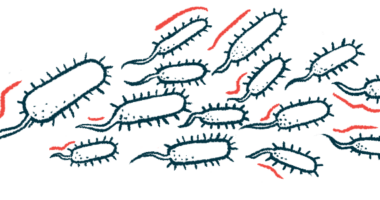CF Foundation Invests in Work on Phage Therapy for Resistant Bacteria

The Cystic Fibrosis Foundation has invested $1 million in Felix Biotechnology to support the company’s efforts to develop a phage-based therapy as an alternative to antibiotics in controlling Pseudomonas aeruginosa infections in people with cystic fibrosis (CF).
“We are incredibly honored and excited to receive this support from the CF Foundation,” Paul Turner, PhD, a professor at Yale University and co-founder of Felix, said in a press release.
P. aeruginosa is a key bacterial agent in CF lung infections. An opportunistic pathogen, these bacteria don’t always cause disease in people, but the thick mucus in the lungs of CF patients is a fertile breeding ground for serious Pseudomonas infection.
According to the CF Foundation, nearly one-third of the people enrolled in its CF patient registry had Pseudomonas infections in 2020. Like other bacterial infections, Pseudomonas can be managed in some cases with antibiotics, bacteria-killing medications.
Pseudomonas bacteria, however, are increasingly evolving resistance to commonly used antibiotics, and a large proportion of these infections in CF patients are resistant to multiple antibiotics. Over 13% of patients with Pseudomonas infections in 2020 also had multi-drug resistant infections, registry data show.
“Developing new treatments for Pseudomonas infections is a priority because they affect a large number of people with CF and can be difficult to treat,” JP Clancy, MD, the CF Foundation’s vice president of clinical research, said in a separate press release. “Phage therapy has shown some promising results in several individual cases, but more research is needed to determine whether this potential therapy is safe and effective.”
To get around the problem of antibiotic resistance, Felix is exploring the potential of using bacteriophages as a form of anti-bacterial therapy for these infections. Bacteriophages, or phages for short, are viruses that can infect and kill bacterial cells.
Felix’s phage therapies are specifically designed to drive evolutionary trade-offs in the bacteria — for the bacteria to gain resistance to the phage, they have to become less pathogenic or more susceptible to antibiotics.
One of Felix’s phage therapy candidates, an inhaled therapy called YPT-01, was initially developed by Turner and other scientists at Yale. A Phase 1/2 clinical trial called CYPHY (CYstic Fibrosis bacterioPHage Study at Yale; NCT04684641) is testing the experimental treatment in up to 36 CF patients with chronic Pseudomonas infections.
CYPHY may still be recruiting eligible patients at its Yale University hospital site in Connecticut; the university is sponsoring the trial.
The CF Foundation investment was given to Felix as part of a Therapeutics Development Award, and will support preclinical work into the potential phage therapy.
“This award will speed Felix in its mission to provide new therapeutic options to patients dealing with life-threatening infections and to develop phage as a broadly applicable antibacterial therapy,” Turner said.








